If you're installing a pool heater to be more comfortable thru the changing seasons, you might wonder whether a gas pool heater would need electricity. We've researched to answer this very question, and here is what we learned:
A gas pool heater uses either natural gas or propane to power the system. It would require a hookup to either a natural gas or propane source; such as a storage tank or line.
If you're having a hard time knowing about gas pool heaters, this might help you. We prepared some common questions and answers that make it easier to understand.
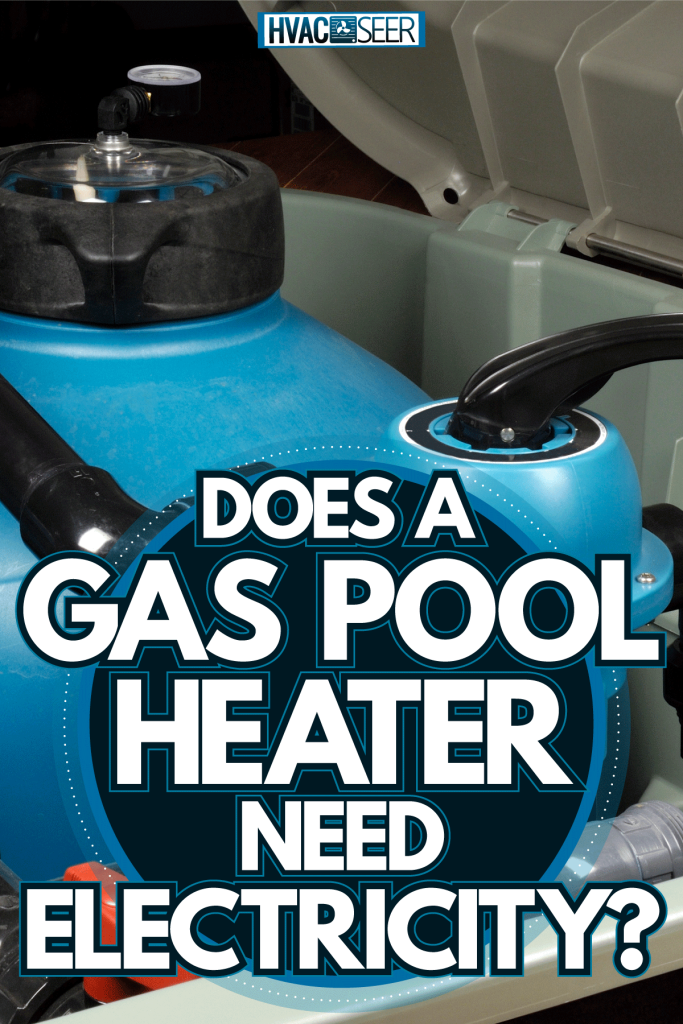
How does a gas pool heater work?
Gas pool heaters work when the gas is burned; heating copper coils that the water flows through pipes will heat the cold water before it turns back to the pool.
It can warm the whole pool faster than an electric heat pump but will also consume lots of energy.
Are gas pool heaters expensive to run?
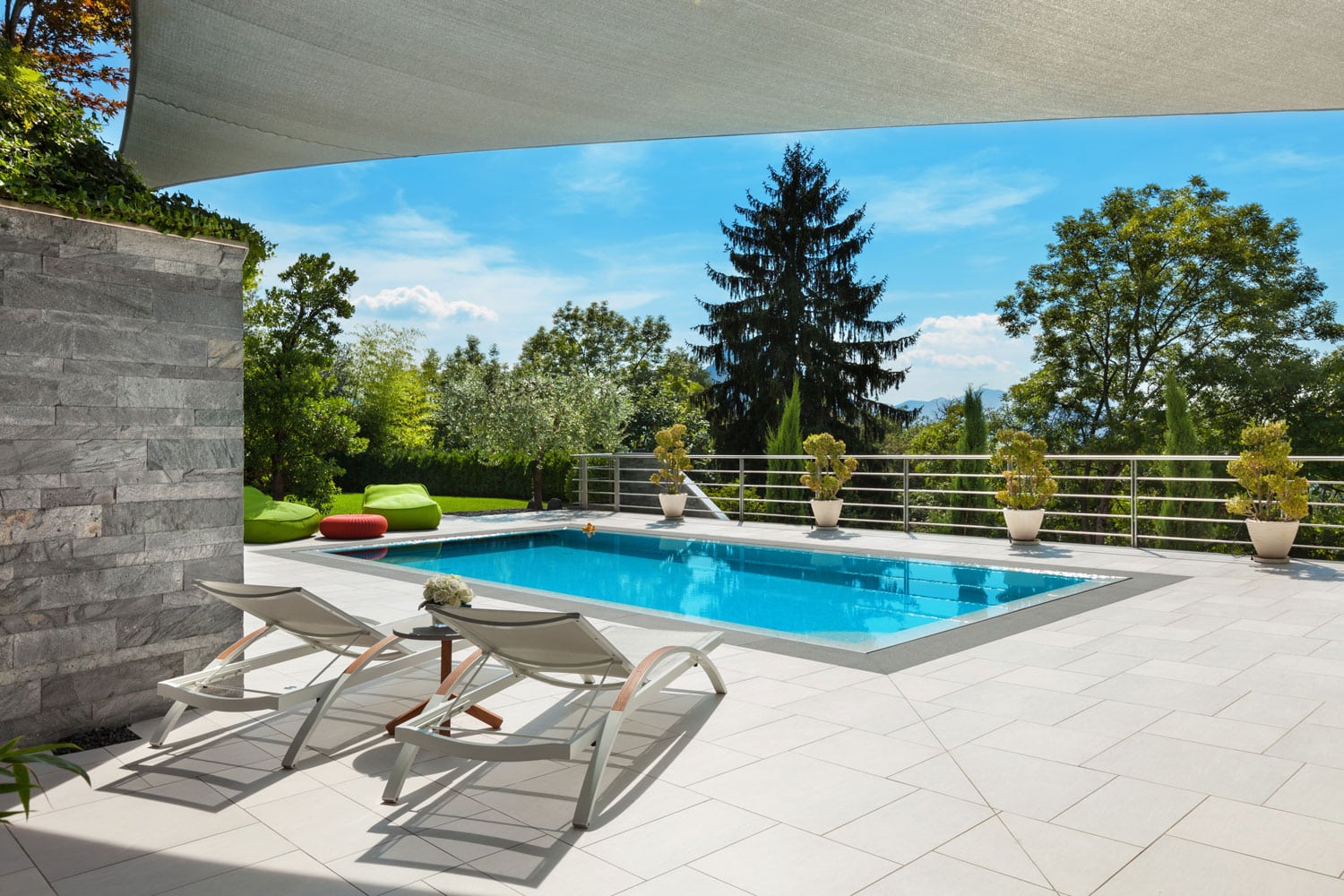
If you plan to have a gas pool heater,the cost depends on the size of your pool and the fuel to be used if gas or propane.
Gas pool heaters are less expensive compared to other types of pool heaters like electric and solar pool heaters, but if you will use them often, this is way more expensive to run. It will cost you $200 to $400 per month.
Can I install a gas pool heater myself?
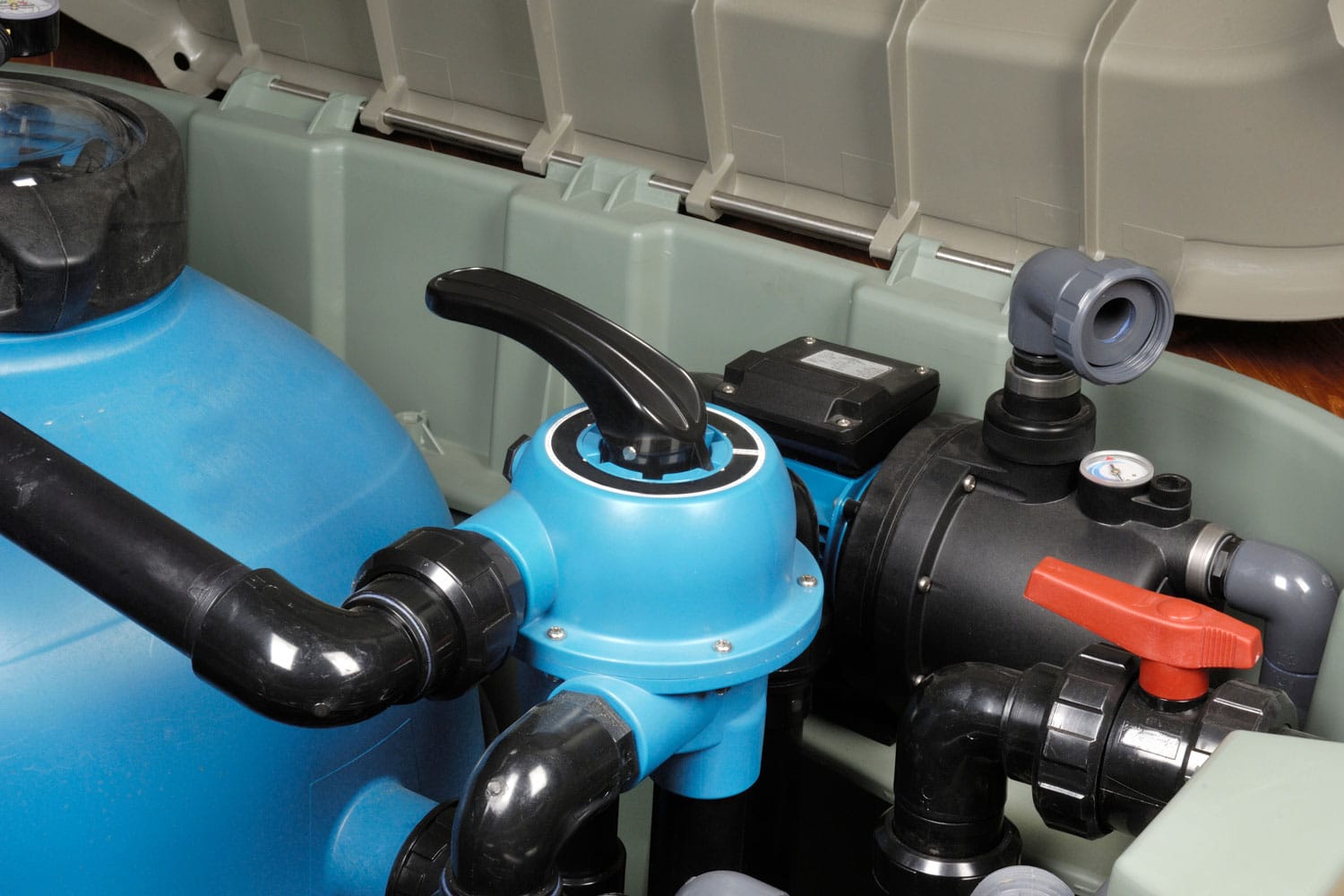
Installing a gas pool heater needs a professional, but for those who want to do it by themselves and have already done this before and want to do it again with a guide, you can follow some steps that are provided here. Remember that there are different procedures for installing an electric pool heater and a solar heater.
Steps on How to Install a Gas Pool Heater on your own
- Purchase a gas pool heating unit
- Find a suitable installation location
- Install gas pool heater to the equipment pad
- Connect the gas heater
- Connect the gas pool heater to the gas supply line
- Test the pool heater
Purchase a Heating Unit
You must have some knowledge in choosing a unit to install. There are a variety of sizes to choose from, depending on the price. Make sure to know the size of your pool to purchase the right unit for its needs.
How will you know the size of your pool? You can ask a professional to do the sizing and help choose what unit fits your pool.
Find a Suitable Installation Location
Finding a place for your heater depends on the type and model you will purchase. Make sure it is near to the pump to use less pipe. Better to install the heater not far from the gas supply line. You should also consider an accessible spot for repair and maintenance of it.
Install gas pool heater to the Equipment Pad
Here are some common equipment pads to be used in a pool heater:
- poured concrete slabs,
- pavers,
- stone,
- anti-vibration mats,
- and plastic pads.
Mostly the size of the pad you will need is at least 4x4. The bigger space the better for accessibility. Considering the noise or vibration it produces, it is better to put it far from your room's windows to enjoy the warm pool without disturbing other people inside the house.
Connecting the gas pool heater
Always be extra careful when dealing with wiring or connecting lines. Follow the guidelines in the manufacturer's manual carefully in any case of an accident, they don't have any obligation to you.
Hiring an electrician is highly recommended for those first-timers to do this kind of work. It's also written in the manual every sized pipe to use, so you must follow the guidelines correctly to ensure that there will be no problems.
You will connect the heater's input to the pump and then the output will connect to the return pipe. Double-check the connection to be sure that you do it right to avoid any accidents.
Connecting the gas pool heater to the Gas Supply Line
Dealing in connecting the gas pool heater to the gas supply is crucial for the first-timer and this is not recommended to do by yourself. If you are hesitating to do it, it's better to call an expert.
Before you connect it, make sure that you inform the authorities and have their approval to connect your gas pool heater to the gas line supply. It's better to be aware of any chances of failure that might happen. They can assist you to provide appropriate locations; however, professionals need not seek authorities' advice as they are well aware of the location considerations.
Test the Pool Heater
Finally, after following all the instructions and guidelines in the manufacturing manual on installing a gas pool heater, you may now test it by turning on the heater and the gas valve. If the pilot light does not ignite, these are the common problems you could solve:
- Check if the heater turns on. Does the thermostat set to a higher temperature?
- Make sure that the pump is running in a clean filter and basket. If the gas valve is in ON position, try to open the gas supply.
- Check if all plumbing and filter valves are open.
It's best to consult an expert if you still can't figure out the problem.
You can also watch how to install the gas pool heater here,
Does it cost more to heat a pool with gas or electricity?
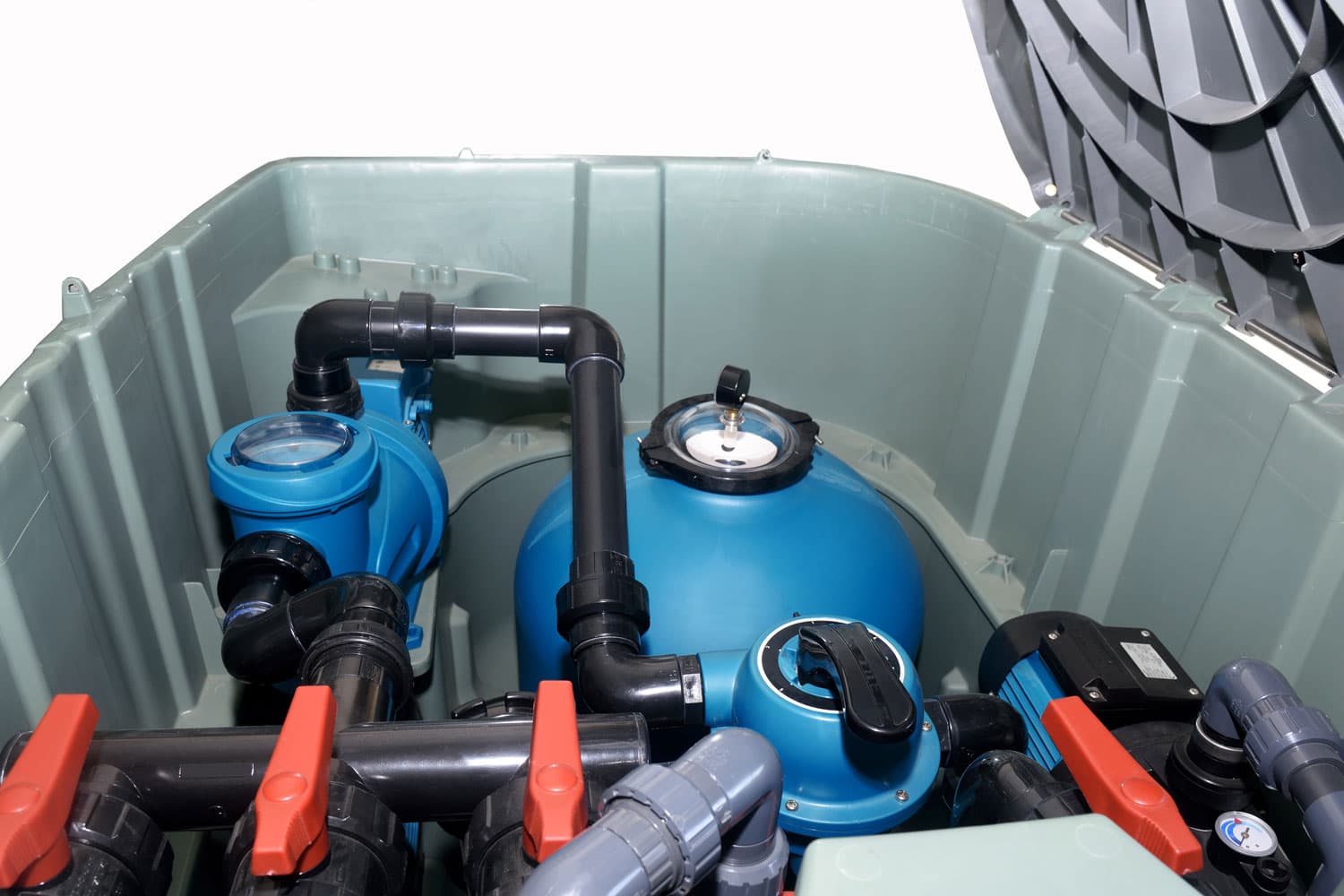
Several factors will impact your actual pool heater costs:
- gas and electricity prices
- the average temperature in your area
- the amount of direct sunlight your pool receives every day
The size of your pool also matters, with larger pools costing more to heat than smaller ones.
A gas heater costs around $200 to $400 a month to run. Electric heat pumps cost less; it's about $100 to $200 a month. As you notice, the gas heater was more expensive to run. And the electric pool heater was expensive in installation but cheaper in terms of monthly bills. In the long run, you can save much more on this.
What is the most efficient way to heat a swimming pool?
The solar pool heater is the most efficient to use.
Installing a high-efficiency solar heater may reduce the cost of heating your swimming pool, using a pool cover, managing the water temperature, and using a smaller pump less often.
How does a solar pool heater work? Pool water is connected to the solar collector, which collects all the solar energy and uses it to heat the pool water. By pumping the pool water up to the collector, it will filter the water to be clean before it reaches the collector, and the solar energy that traps in the collector panel can generate heat for the pool water.
Final Thoughts
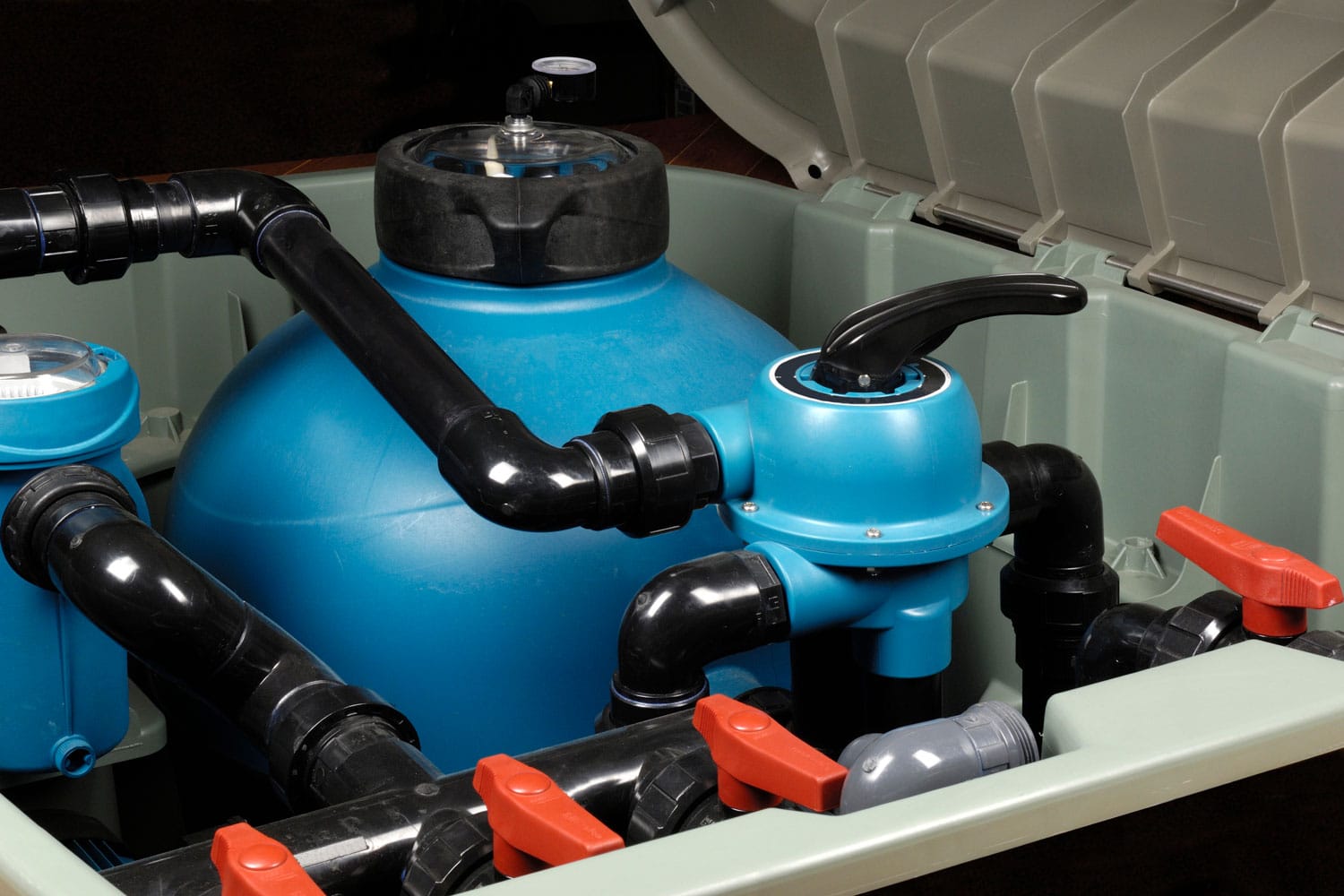
You can absolutely add a natural gas or propane tank to your outdoor pool. Make sure you employ a professional for the installation process. A gas pool filter can save you down the line with efficient heating.
For more great reads to keep your pool running in tip-top shape, check out: "How To Clean A Pool Heater Filter." and "Can You Add A Pool Heater Later To An Existing Pool?"
